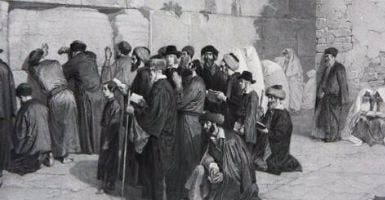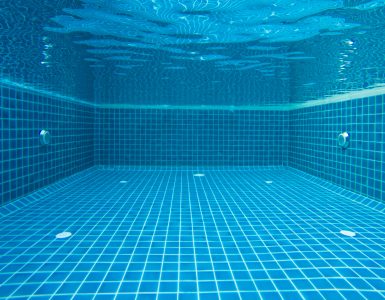In recent months, many countries have begun campaigns to vaccinate children against COVID-19. Many parents are refraining from vaccinating their children due to various false rumors and unfounded conspiracy theories. This essay will not address the question of SARS-CoV-2 vaccination in children but will examine an interesting aspect of this issue.
According to Israeli law, a minor may not be vaccinated against his will. This is an explicit clause in the consent form that must be signed by parents.
We have discussed the topic of coercive medical treatment in several prior essays. We noted that the prevailing view of the Poskim is that a person has no authority to reject lifesaving medical treatment, but he may reject non-lifesaving treatment. This is true of a conscious person with Da’as (i.e., of sound mind). If he is unconscious, lifesaving treatment should be administered, and perhaps even other types of treatment as well – depending on what he is likely to have agreed to had he been conscious. A person’s relatives play an important role in this regard. Though they have no more authority to determine the course of his medical treatment than anybody else, they are likely to have a better idea as to what he would have wanted.
All of the above applies to an adult. With regard to children, the situation is more complex. Simply put, a child does not have Da’as such that he could consider his options and make a decision. Therefore, even if he is unconscious, there is no value to considering what he would have wanted. Parents are also their child’s legal guardians and they have the authority to make decisions for him and are responsible for his wellbeing.
This is not only true by law, but also according to
Halacha. Though the Gemara does not explicitly discuss a parent’s obligation to
arrange their child’s medical treatment, the Poskim maintain that it is
included in their obligation of “Mezonos”
(feeding him). This is similar to the Gemara’s statement (Kesubos 52b) that a husband’s obligation to arrange his wife’s
medical treatment stems from his obligation to provide her with Mezonos. There are several distinctions
drawn between various types of medical treatment as implied by the Gemara (ibid.) and Shulchan Aruch (E.H. 70).
However, the underlying principle is clear – parents are responsible for the
wellbeing of their child and for providing him with his needs.
The Minchas Yitzchak (6:150) notes that this is also implied by the Chasam Sofer (Y.D. 76) who discusses the obligation of parents to arrange medical treatment for their eighteen-year-old daughter:
It is indeed obvious that this father has no obligation to support or provide for the medical treatment of an eighteen-year-old daughter. She is like any other Jewish poor person who is the responsibility of the public.
The Chasam Sofer implies that if she had been younger than eighteen, her father would have been obligated to provide for her medical treatment.
The Minchas Yitzchak also maintains (as do many other Poskim) that parents are obligated to provide for their children’s’ medical treatment because refraining from doing so would be cruel. Moreover, they are obligated by the Mitzva of “Lo Sa’amod Al Dam Rei’acha”, since children are unlikely to be cared for by others, particularly when they live with their parents.
The Tzitz Eliezer (20:47) relates that the Batei Din in Eretz Yisrael decided that a father is obligated to provide “Mezonos” (which includes Refua, as stated) to their children until the age of fifteen. He has no obligation to feed or provide Refua for older children.
To summarize, a parent has a Halachic and legal obligation to ensure their children’s’ wellbeing, and the authority to make decisions on their behalf. However, the Poskim state conclusively that a parent has no authority to make a decision that harms their child’s interests or wellbeing. In the words of R’ David Tzvi Hoffman (Shu”t Melamed l’Ho’il, 2, Y.D. 114), “We do not find in the entire Torah that a father or mother has permission to endanger the lives of their children by preventing a doctor from treating them.”
When the Parents Approve But the Child Refuses
If parents believe that a particular course of treatment or procedure is in their child’s best interests, but the child is not willing to go along with it, can they compel him?
Obviously, if a child’s life is in danger, his parents may force him to undergo treatment. He is no different than any other patient whose life is in danger to whom we may administer coercive medical treatment (Mor u’Ketzia 328). The child, moreover, has no Da’as to make his own decision.
In addition, they may even force him to undergo non-lifesaving treatment. Though the basis to compel a patient to accept non-lifesaving treatment is due to the fact that Refua is a Mitzva (“Kofin Al haMitzvos”) and children are not obligated in Mitzvos, parents may nevertheless force their child to undergo treatment due to their role as his legal and Halachic guardian.
Until what age does this apply? The Tzitz Eliezer (ibid.) adduces proof from the Gemara (Kesubos 11a) which discusses the Halachos of Gerus for a minor. The Gemara states that that a father can convert together with his young children, however, “when they grow up”, they can object to the Gerus and return to their former life. This is also codified by the Shulchan Aruch (Y.D. 268). Most Rishonim (see the Ran ibid. et al.) explain that the children cannot protest when they are young because they do not have Da’as.
At what age are they considered to have “grown up”? Most Rishonim do not state this explicitly, but the Meiri rules that children have “the first hour of their fourteenth year” to reject the Gerus, in other words, the first hour after turning Bar Mitzva.[1] If so, the same should apply to other decisions made by parents; children should be able to reject them immediately upon turning Bar or Bas Mitzva.
This leaves parents in a remarkable position. They are obligated to provide Mezonos and Refua until the age of fifteen, as stated above, but their child can reject their authority to make medical decisions for him or her at age twelve or thirteen!
The Tzitz Eliezer adds:
Though the son has the right to object to medical treatment when he reaches this age, the father is required, due to the obligation of Chinuch, to strongly attempt to influence his child in all ways possible to accept the treatment. I say this based on the Gemara in Kidushin (30a) that makes a similar statement regarding finding his son a wife. The Gemara states, “While your hand is on the neck of your son – from the age of sixteen until twenty-two, and some say, from eighteen until twenty-four.” Rashi explains: “While your hand is strengthened over him, make sure you give him reproof.” And what is the age to do that? From the age of sixteen until twenty-two. [When he is] younger than sixteen he does not have sufficient Da’as to accept rebuke, thus you should not give him heavy punishments or rebuke, [but if he is] older than twenty-two you should [refrain due to the] concern that he will rebel.
The Meiri explains that Gemara as follows:
A person should always be sure to oversee his children’s affairs and continually rebuke them, whether they are old or young. Nevertheless, the most appropriate time to attempt to strongly rebuke them is from when their Da’as begins to flourish and sprout, which is from the age of sixteen until twenty-four.[2] Prior to age sixteen he does not have sufficient Da’as to accept [the rebuke] and above the age of twenty-four he does not particularly listen [to his parents]. Regardless, during these years his rebuke and guidance for his son should be constantly primed.
We can conclude from the above that parents should try earnestly to influence their child to undergo treatment, even if they are at an age where they cannot be coerced.
The Tzitz Eliezer adds:
When the father has the ability to influence the son to agree to consent to the necessary treatment, he is then bound by the general obligation of “And you shall return it to him”, as stated by the Torah (Devarim 22), as per the Drasha of Chaza”l that the Pasuk incudes “healing the body” of another. It is evident from the Rambam in Peirush haMishnayos, Nedarim, Chapter 4. that this [obligation] includes all methods of providing treatment, whether physically, financially, or by means of providing medical knowledge.
It would seem logical that in spite of a parent’s obligation and right to compel his children to undergo even non-life saving treatment, he cannot compel them to undergo non-urgent treatment when they could make a decision themselves when they become adults. For example, some cosmetic dental procedures or orthodontic treatments would be included in this category, particularly those that are performed solely for aesthetic reasons.
In light of all of the above, regarding the vaccine for COVID-19 we would conclude that since doctors assert that it is important for the child’s health, a parent has the right to decide to vaccinate his child even against the child’s will. However, as emphasized above, a father should patiently and gently explain to the child why the vaccination is necessary and attempt to convince him to do it willingly.
We will conclude by discussing cases in which parents and their grown children disagree about medical treatment.
It is certainly clear that a grown-up has the independent right to determine whether to consent to a given medical treatment and his parents have no say in the matter. Regarding the obligation of Kibud Av v’Eim, the Halacha is “Kibud Av – miShel Av” – a person is not obligated to spend his own money or resources to honor his parents (Y.D. 240:5). It follows that he would certainly not be obligated to decide matters relating to his health in accordance with their wishes.
In spite of the above, there are several instances in which the Poskim do discuss whether children should accede to their parents’ wishes regarding matters relating to their health.
The Hagahos Lechem Yehuda (Y.D. 240) rules that if a person wishes to observe non-obligatory fasts and his parents object because they are concerned about his health, he should not fast.
The Arugas haBosem[3] (O.C. 19) rules that if parents insist that their child only immerse himself in a heated Mikva, he should try to convince them to retract their demand and should not disregard it outright.
The Shraga haMeir (4:34) discusses whether a man whose mother directed not to walk about the streets at night was allowed to disregard her instructions in order to collect money for Tzedaka. The Shraga haMeir rules that he should obey his mother given that his Tzedaka collections were only a matter of Midas Chasidus and not an actual obligation.
Rav Yitzchak Zilberstein Shlit”a (Shiurim l’Rofim
2, p540) cites the aforementioned sources in his discussion of a man who wanted
to donate a kidney but his parents objected. He concludes that even though the
quoted Poskim had ruled that one should not override his parents’
objections for something that is only a Midas Chasidus, since kidney
donation is a tremendous Mitzva, it overrides Kibud Av v’Eim and he should disregard his parents’ objections.
[1] The Meiri is attempting to resolve a conundrum discussed by other Rishonim as to the moment that the protest can take place. When the children are not yet considered to have “grown up” it is too early to protest, but if they have “grown up”, it is surely too late!
[2] The Meiri combines two different opinions cited by the Gemara.
[3] R’ Moshe Greenwald zt”l of Chust (1853-1911) was one of the great Hungarian Poskim at the end of the 19th century and progenitor of the Pupa Chasidic dynasty through his son R’ Yaakov Yechezkiya.














